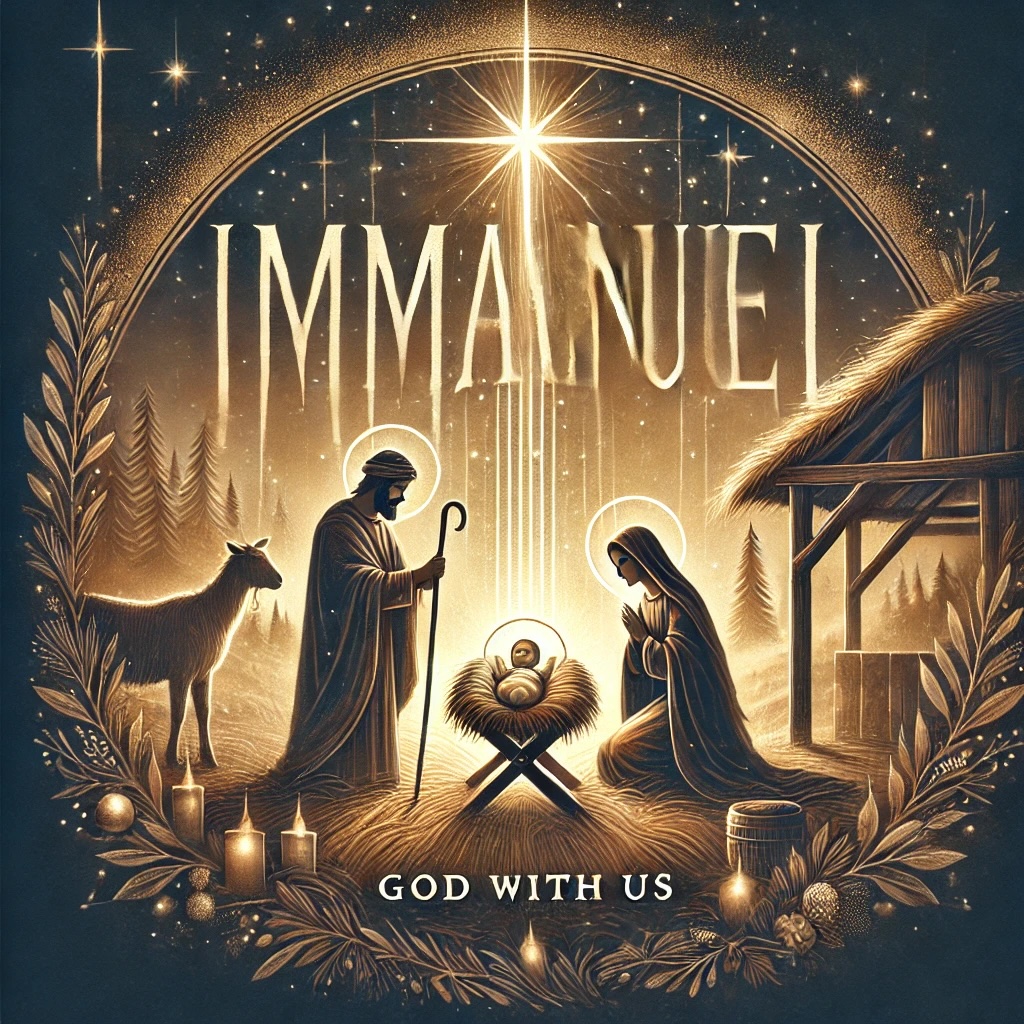Matthew 1:18-25
Christmas is a time when we celebrate the miraculous – the arrival of Immanuel, “God with us.” In Matthew 1:18-25, we see the extraordinary story unfold with Mary, Joseph, and an angelic messenger. These key figures remind us of the weight of God’s plan and the depth of His love.
Mary and Joseph: Faithful and Obedient
Mary was most likely a young woman, perhaps even a teenager, as was customary for betrothals in her time. Betrothal was more than an engagement; it was a binding agreement. Breaking it required a legal divorce. This context sheds light on Joseph’s decision when he learned of Mary’s pregnancy. He initially planned to “put her away” quietly, meaning to divorce her without shame.
Mary faced immense risks with this pregnancy:
- Her Virginity: As a virgin pledged to be married, her pregnancy was scandalous. It took divine intervention for Joseph to believe and accept the miraculous truth.
- Cultural Law: According to Old Testament law, a woman found unfaithful could face severe punishment, even death (Leviticus 20:10).
- Stigma: Despite knowing the truth, both Mary and Joseph would face societal whispers about Jesus’ legitimacy.
The Incarnation: God With Us
Mary’s pregnancy by the Holy Spirit is the foundation of the incarnation. Jesus had to be born of a woman but without inheriting the sinful nature passed down from Adam. This miraculous conception fulfilled a prophecy made hundreds of years earlier:
“Therefore the Lord himself will give you a sign. Behold, the virgin shall conceive and bear a son, and shall call his name Immanuel.” – Isaiah 7:14
Why does the incarnation matter? Jesus, fully God and fully man, was uniquely qualified to rescue humanity. Only a sinless man could atone for sinful humanity, and only God could bear the weight of that sin.
Charles Spurgeon captures the mystery of the incarnation: “It is a deep, mysterious, and delicate subject, fitter for reverent faith than for speculative curiosity.”
Paul Tripp adds, “The incarnation of Jesus Christ pointedly preaches our inescapable need for radical, personal, and moral rescue and forgiveness.”
Belief and Obedience
Belief leads to obedience, and obedience strengthens belief. Faith itself is a gift from God:
“For by grace you have been saved through faith. And this is not your own doing; it is the gift of God, not a result of works, so that no one may boast.” – Ephesians 2:8-9
Mary and Joseph’s actions exemplify this truth. Mary praised God, as recorded in Luke’s Gospel, while Joseph obeyed by taking Mary as his wife and refraining from consummating their marriage until after Jesus was born. Their obedience reminds us to trust God’s plan even when it challenges our understanding.
The Christmas Message: Good News and Bad News
Christmas brings both good news and bad news. The bad news is that humanity is broken and in desperate need of rescue. Sin has separated us from God, and no human effort can bridge the gap. But the good news is far greater: God did not leave us in our helpless state. Through Jesus, He provided the only way to be rescued.
Christmas reminds us of God’s kindness, love, and goodness. Jesus is our rescuer, Immanuel, God with us. As we celebrate, let us reflect on the miracle of His birth and the hope it brings to all who believe.

